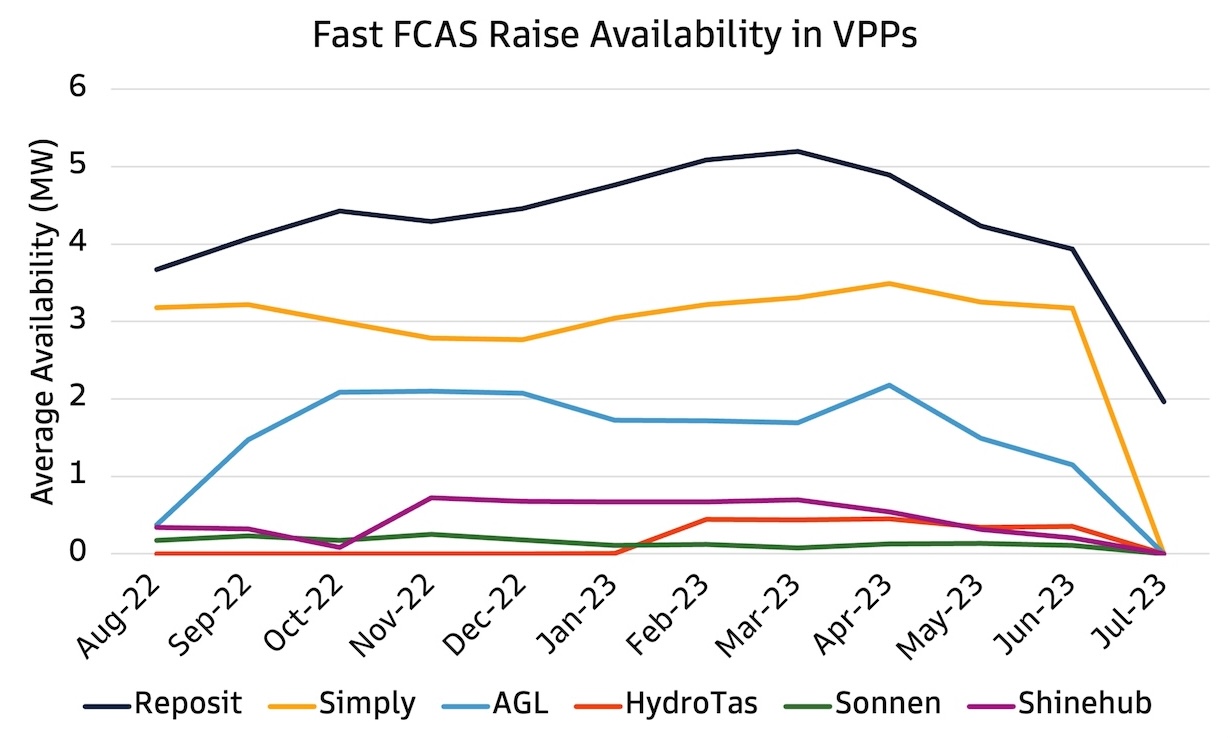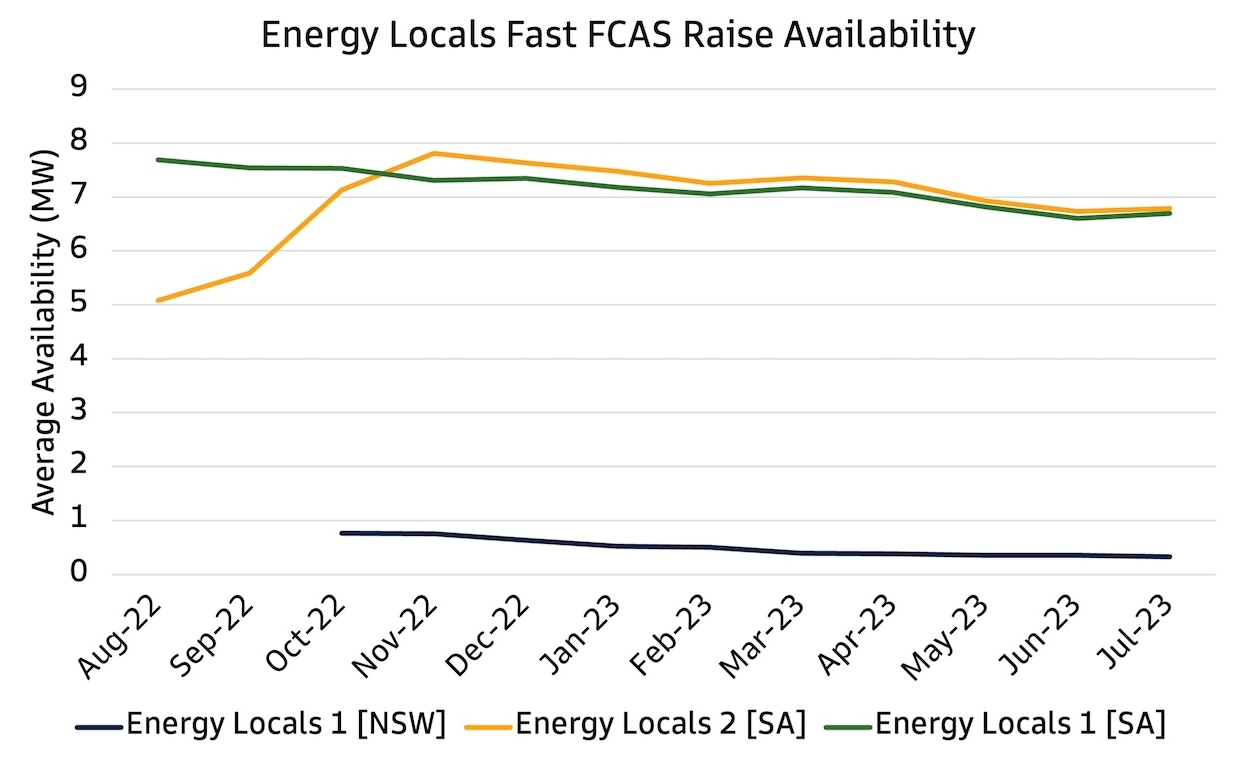
August 26, 2023
Back in the olden days all assets participating in fast FCAS required meters that could sample at 50ms or faster. Many residential VPP operators had meters that were slower than this, so AEMO ran the VPP Demonstrations which tested a specification requiring only 1 second sampling and one 50ms high speed meter on a site in each NEM region.
In the end, through a rollercoaster of a process filled with drama and consternation, AEMO decided 1 second meters were too slow, but 200ms measurements are probably ok for VPPs in fast FCAS.
This created an awkward situation. What should be done with all of the VPP trial capacity that was currently providing fast FCAS that could meet the 1 second requirement, but not the 200ms requirement? AEMO gave participants a sunset period until June 2023 to comply with the 200ms requirement or be kicked out of the fast FCAS markets.
So now that July 2023 has come and gone, what can we see?
It turns out that fast FCAS capacity offered from most residential VPPs dropped to 0MW, while continuing to provide normal amounts of slow and delayed FCAS.

There are two exceptions to this.
One is Reposit, whose average offered capacity hasn’t gone to zero but it has been halved. Throughout the AEMO consultation Reposit proclaimed how they have low-cost 50ms meters, and participated directly in the market rather than the trial, so this reduction of capacity during the sunsetting of the VPP trial arrangements is odd and may just be coincidental.
The other is Energy Locals with their fleet and close partnership with Tesla that has had no material reduction to their fast FCAS capacity.

VPP fleets in FCAS are often comprised of a range of different battery brands and capabilities. Some battery systems may be able to achieve 200ms metering, some not, and some may have the capability but restrict access to it.
What will be interesting to see over the coming months is whether any of these participants begin operating in fast FCAS again. This could be through splitting their VPPs into DUIDs with battery systems capable of doing fast FCAS, and DUIDs which don’t, or through re-certifying their entire fleet as 200ms capable. The FCAS registration and updating processes are particularly poorly suited to DER, so we may have to wait months or longer to see if it’s R.I.P to most of the VPPs in fast FCAS or whether there’s more to come.
Suggested Posts: